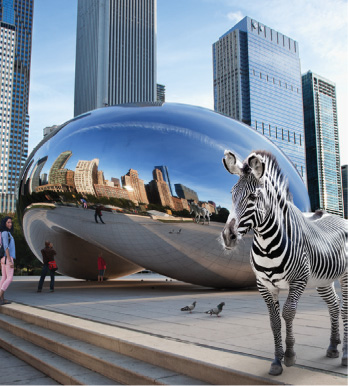KNOWLEDGE YOU CAN USE


As we have seen, in the animal world, it is very, very rare to find individuals engaging in costly behaviors that benefit unrelated individuals; with few exceptions, we see little that resembles animal “friendship.”
Humans are a rare exception—
Question 9.14
Q: Why is “kindness” a risky behavior evolutionarily? From an evolutionary perspective, we remain vulnerable. With each costly act we perform for unrelated individuals, strangers and friends alike, there is the risk that our efforts will be in vain, our energies lost. For that reason, in our evolution as reciprocal altruists, we acquired a hesitancy to stick our necks out.
Question 9.15
Q: How can we help others feel less vulnerable and more willing to cooperate? Our ability to override the impulses that often push us toward selfishness is one of the hallmarks of being human. Still, in each interaction, there may be an individual on the other side who is also feeling vulnerable. By taking steps, often absurdly simple, to address the unconscious vulnerabilities that others feel, we can increase the likelihood that they choose cooperation, reciprocity, and friendship.
 Learn and use other people’s names. It tells them you recognize them specifically and, consequently, that you understand exactly who it is that you “owe.” Smile and make eye contact—
Learn and use other people’s names. It tells them you recognize them specifically and, consequently, that you understand exactly who it is that you “owe.” Smile and make eye contact—even when attempting to change lanes in traffic. These gestures feel like the beginning of a relationship, thus stimulating favor- granting instincts.  Embrace etiquette. Acknowledge your debts to others. Be effusive and public in your thanks for kindnesses done to you. Send thank-
Embrace etiquette. Acknowledge your debts to others. Be effusive and public in your thanks for kindnesses done to you. Send thank-you cards.  Take the first step in reciprocity. Human cooperation is so tied to reciprocal exchange that even tiny gestures of good faith can play an important role in building relationships. Whenever possible, give gifts. Even small ones. Even when they are not required. (Especially when they are not required.)
Take the first step in reciprocity. Human cooperation is so tied to reciprocal exchange that even tiny gestures of good faith can play an important role in building relationships. Whenever possible, give gifts. Even small ones. Even when they are not required. (Especially when they are not required.) Develop a good reputation. Become known for generosity, for loyalty, for remembering and acknowledging kindnesses done to you.
Develop a good reputation. Become known for generosity, for loyalty, for remembering and acknowledging kindnesses done to you.
Can you think of other steps?

399